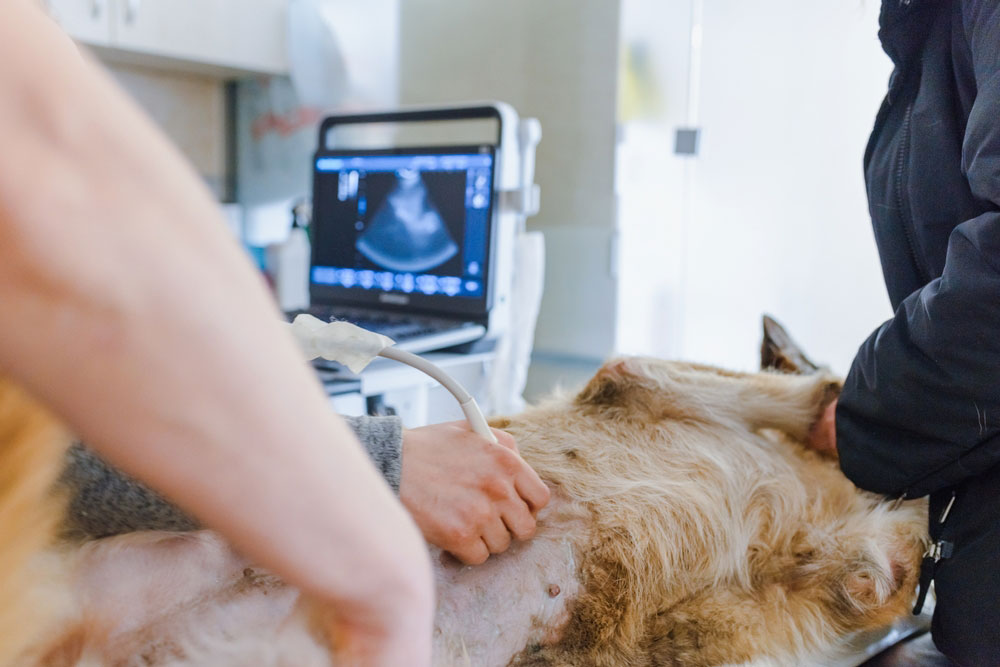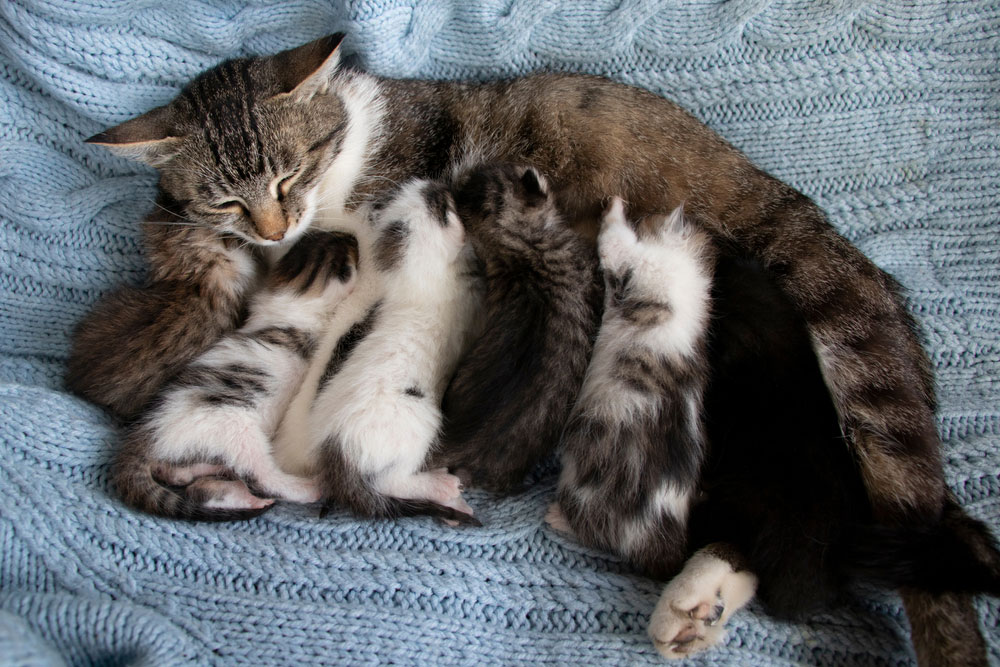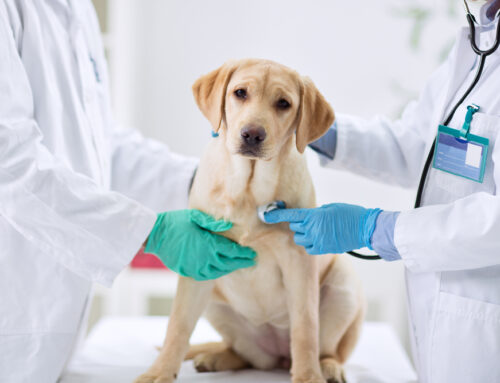Birthing Complications in Pets: When to Seek Emergency Help
The birth of a litter of puppies or kittens is an exciting event, but not all deliveries go smoothly. Birthing complications, known as dystocia, can put both the mother and her offspring at risk. Recognizing the warning signs of trouble and knowing when to seek veterinary intervention can save lives.
At Mission Veterinary Clinic & Animal Emergency Hospital in Granada Hills, CA, we provide advanced reproductive care and emergency services to ensure safe labor and delivery for pets experiencing complications.
Understanding Birthing Complications in Pets
Dystocia refers to difficulty giving birth due to obstructed labor, weak contractions, or maternal distress. Some pets deliver naturally, but others require medical assistance or emergency surgery.
Common Causes of Birthing Complications
Maternal Factors:
- Breed predisposition – Certain breeds, such as Bulldogs, French Bulldogs, Chihuahuas, and Persian cats, are at higher risk due to narrow birth canals or large-headed offspring.
- Uterine inertia – The uterine muscles fail to contract effectively, preventing labor from progressing.
- Maternal exhaustion – Extended labor depletes energy reserves, leading to weak or absent contractions.
Fetal Factors:
- Oversized offspring – Puppies or kittens that are too large relative to the mother’s birth canal can get stuck.
- Malpositioned fetus – Improper positioning, such as breech births, may prevent smooth delivery.
- Congenital abnormalities – Some fetuses have developmental defects that complicate birth.
External Factors:
- Previous reproductive issues – A history of C-sections, infections, or hormonal imbalances increases the risk of dystocia.
- Infections or illnesses – Maternal infections can cause premature labor, stillbirths, or weak offspring.
Some pets may require assistance even in seemingly normal deliveries. If your pet is expecting, schedule a prenatal check-up at Mission Veterinary Clinic to assess their health and determine the safest birthing plan. Learn more about our emergency services.
Warning Signs of Birthing Complications
Being prepared and knowing the warning signs of a difficult labor can help prevent critical emergencies.
Signs That Require Immediate Veterinary Attention:
- Strong contractions for more than 30 minutes without delivering a puppy or kitten.
- More than 2–3 hours between births with visible straining.
- Green, black, or foul-smelling discharge (indicates placental separation or infection).
- A puppy or kitten stuck in the birth canal for more than 10 minutes.
- Heavy panting, vomiting, extreme lethargy, or collapse (signs of maternal distress).
If your pet shows any of these signs, contact a veterinarian immediately. Delays in intervention can lead to stillbirths, severe infections, or maternal death.
For additional emergency scenarios, refer to our guide: Emergency Pet Symptoms: When to Seek Immediate Care.
Diagnosis and Treatment at Mission Veterinary Clinic
When a pet arrives with suspected birthing complications, our experienced team will quickly assess the situation using:
- Physical Examination – Checking for obstructions, fetal distress, or maternal weakness.
- Imaging (X-rays & Ultrasound) – Identifying fetal size, position, and viability.
Treatment Options for Difficult Labor
Manual Assistance
- If a single puppy or kitten is stuck, a veterinarian may carefully reposition and assist in delivery.
Oxytocin Injections
- In cases of weak contractions, oxytocin may help stimulate labor if no obstructions are present.
Emergency C-Section
- If labor does not progress, fetal distress is detected, or obstruction occurs, a Cesarean section (C-section) is the safest option.
Some breeds (Bulldogs, Boston Terriers, and Persian cats) often require planned C-sections due to high rates of birthing difficulties. If your pet belongs to a high-risk breed, consult your vet before delivery. Learn more about emergency C-sections from the AKC’s guide to C-sections in dogs.
Post-Delivery Care and Recovery
After delivery, both the mother and newborns require careful monitoring to ensure a smooth recovery.
For the Mother:
- Watch for infections – Fever, swelling, or abnormal discharge may indicate a postpartum infection.
- Monitor milk production – Lack of milk may require supplemental feeding for the newborns.
- Encourage rest – Minimize stress and handling to promote recovery.
For the Newborns:
- Ensure all puppies/kittens are nursing within the first 1–2 hours.
- Check for weak, cold, or struggling newborns—these may need immediate veterinary care.
- Monitor for deformities or breathing difficulties.
Regular follow-ups at Mission Veterinary Clinic help ensure a healthy recovery for both mom and babies.
Reducing the Risk of Birthing Complications
While some complications are unavoidable, proper prenatal care can greatly reduce the risk of dystocia.
- Schedule regular veterinary check-ups – Prenatal exams detect potential issues early.
- Plan ahead for high-risk breeds – Discuss planned C-sections if necessary.
- Maintain proper nutrition – A well-balanced diet supports a healthy pregnancy.
- Monitor weight gain – Obese pets struggle with labor, increasing C-section risk.
- Know when to seek help – Familiarize yourself with signs of dystocia and have an emergency plan ready.
For advice on preventing birthing complications, visit Mission Veterinary Clinic or call us to schedule a prenatal consultation.

Expert Care at Mission Veterinary Clinic
Birthing complications can be stressful and life-threatening, but with the right veterinary support, many emergencies can be managed successfully. At Mission Veterinary Clinic & Animal Emergency Hospital, we are committed to:
- 24/7 emergency support for labor complications
- Advanced diagnostics, including X-rays and ultrasound
- Expert C-section and surgical intervention
- Comprehensive post-delivery care for mothers and newborns
Schedule a prenatal check-up today: Contact Us
Your pet’s safety during labor is our top priority. If you have any concerns about your pet’s pregnancy, don’t wait—seek expert veterinary guidance now.










Leave A Comment